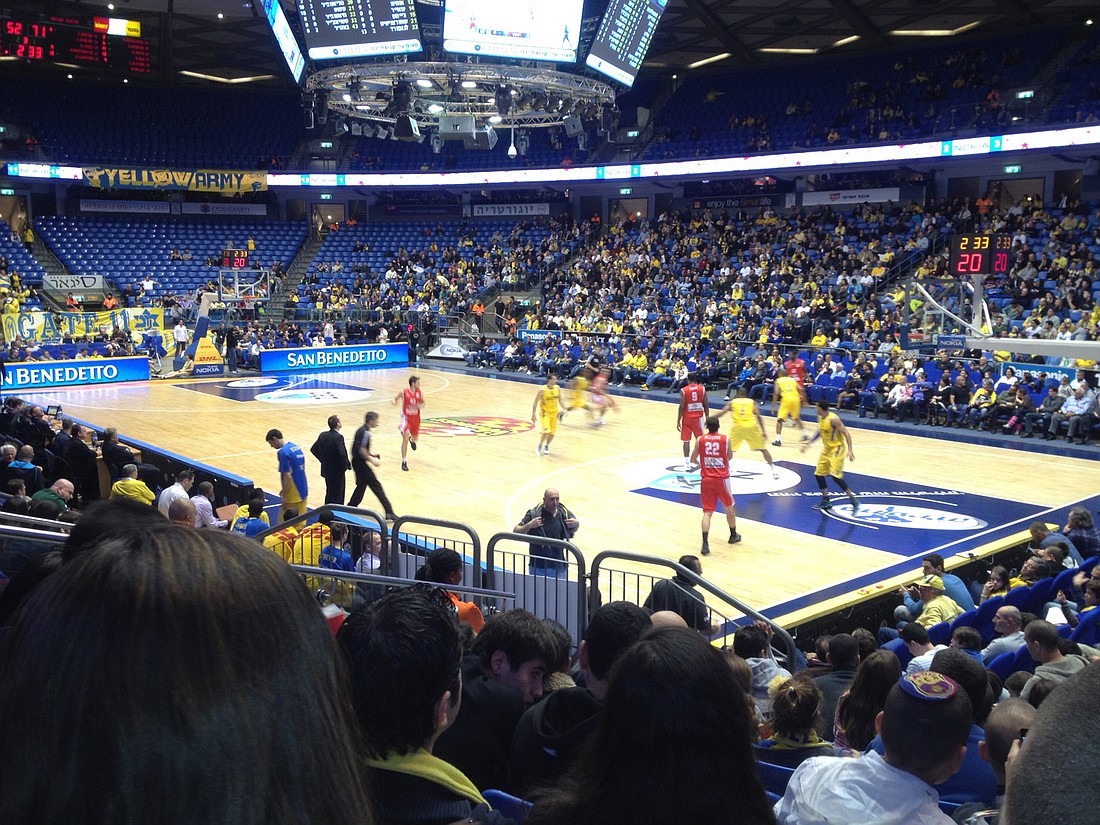- April 18, 2024
-
-
Loading

Loading

This is a most unusual report from the Energetic Travelers, because we had a unique personal reason to re-visit Israel: Our grandson, Jon Scheyer, was playing professional basketball in Israel for Maccabi Tel Aviv, one of the best professional teams in Europe. Previously, he was captain of a suburban team that won the Illinois State championship and he then went on to captain the Duke team that won the NCAA tournament in 2010. Basketball is the second-most popular sport in Europe, behind the beloved football — soccer to us.
We last visited Israel in 2000 as part of a group that was guided by the Israeli government, and we saw most of the traditional sites. There have been many recent articles elsewhere on travel in the larger Holy Land, so we’ll confine this report to our impressions of the social, political and physical situations of living in Israel, particularly Tel Aviv.
The visit was enlightening in many ways. First, consider some of the demographics. Total population is approximately 7.8 million, half the size of Holland. Three-quarters were born there, and most of the others emigrated from Europe. One-quarter are Arabs, and 17% of the total population is Muslim. Curiously, 23% of the adults are obese.
Tel Aviv and its suburbs have half the population of Jerusalem, but it is the business and financial center. The most impressive fact about Israel continues to be its technological achievements, with the highest density of start-ups in the world. It leads in new patents. This resulted in an infusion of venture capital and highest-per-capita listings of companies on world stock exchanges. All of this has supported a robust economy with an unemployment rate of just more than 5%.
Newly discovered natural-gas sites and desalinization plants are eliminating shortages of energy and water. Quite a bit has been written about electric cars in the country. It looks like a network of electric exchange stations will be a reality. At the station, a fully charged battery would replace the depleted battery in the same time that it takes to fill up with gas.
We also witnessed a new technological system for calling a taxi. Instead of calling and having a dispatcher find a cab and send it, you activate an app on your phone. It alerts cabs near you, and one is dispatched to you. It’s quick and much more efficient. We understand that a U.S. company bought the rights a few months ago to bring it here.
Socially, Israel is a kaleidoscope, with remarkable and diverse facets. Just consider the base population of Christians, Jews and Muslims who were born there. Now add 2 million who came from Europe during the ’70s and ’80s. Put in a sprinkling of others from Africa.
Politically, we found the same differences between right hard-liners and left-leaning liberals that we have in the States. The biggest surprise was that life goes on without much regard for the Palestinian attacks that are so much in the news here.
Every Israeli, except the Haredim, serves in the army. When we asked friends about required service, they were somewhat surprised that we even asked. Army service is accepted and expected as much as entering first grade for a child here. It is made somewhat easier because many service members actually live at home while serving. It has been speculated that some of the innovation in Israel is encouraged by the fact that the army creates a more mature person and that advanced education is postponed until after service.
A few random observations: We are pleased to report to our gourmet readers that restaurants in Israel are enjoying a total renaissance. They no longer serve tasteless mystery food but have varied cuisines that rival any sophisticated city.
The beaches remain world class and are well populated. New office buildings and commercial complexes are growing, but good architecture is not an Israeli strong point.
On the disappointing side is the amount of graffiti, which is almost everywhere in Tel Aviv. It’s surprising to have it on the front of middle-class apartment buildings and any available wall. The city is also surprisingly grimy; dirty cars are the norm.
We close with one unique moment in a taxi; the drivers are as diverse as the overall society. Some immigrants speak minimal English, while locally born Sabras begin learning English in first grade. Our cab driver was a well-bearded middle-aged man who spoke English quite well. He started with the usual “Where are you from?” — “Florida and Chicago” — “Oh, I worked in Wisconsin for two-and-a-half years” — “Where in Wisconsin?” — “Green Bay” — “And what did you do in Green Bay?” With that, he held up his left hand and ran across with a slicing motion with his right hand. “I killed chickens.” “IN GREEN BAY?” It turns out that he was brought to Green Bay to kill chickens in the traditional kosher way. It is a small world.
Stuart and Lois Scheyer, writers of the Energetic Traveler® column, bracket the 80-year mark and are residents of Longboat Key. They each log more than 100,000 air miles a year. They will be pleased to answer any travel questions and can be reached by email at [email protected].